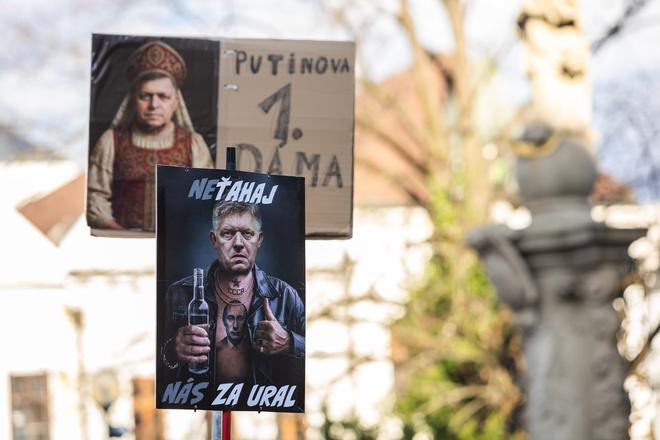Slovakia is among the most polarised countries in the world, according to a new study by the DEKK Institute, which warns that societal divisions are not only profound but also dangerously entrenched. The report, titled “Polarisation and the Anti-System 2025”, explores the causes of polarisation, examines Slovak society, and compares the country’s position with international trends.
Referring to global indices, the study highlights that Slovakia is the second most polarised country in Europe, following Hungary, based on data from the V-DEM Institute. For a broader international comparison, DEKK adopted a methodology used by the 2023 Edelman Trust Barometer. The model combines two questions: how divided people perceive their society to be, and whether they believe reconciliation is possible. While Slovakia was not included in the original Edelman survey of 28 countries, DEKK applied the same framework and found that only Argentina exhibited a higher degree of polarisation.
“The fact that nearly everyone agrees the country is divided may ironically be the one thing most people have in common,” said Pavol Kosnáč, director of the DEKK Institute.
The study indicates that 97 percent of Slovaks believe their society is divided. However, only 44 percent think reconciliation is possible or likely, reflecting a deep scepticism about the potential to bridge existing divides.
Trust in decline across generations
In a further report titled “Trends in (Dis)Trust 2025”, DEKK reveals a troubling picture of interpersonal trust in Slovakia. General trust among the public stands at just 21.3 percent. The youngest and oldest generations report the lowest levels of trust. Among those aged 55 to 64, only 16 percent believe most people can be trusted, while over 81 percent think one must be very cautious when dealing with others. DEKK attributes this outlook in part to life under the former authoritarian regime, where people were accustomed to censoring themselves in public settings.
“In Western Europe, where totalitarianism was not part of recent history, older people tend to trust others more than younger generations,” Kosnáč noted. He also pointed to the post-1989 wave of disillusionment, when many Slovaks expected rapid economic parity with neighbouring Austria.
The report identifies millennials, born between 1981 and 1996, as the generation contributing most positively to interpersonal trust in Slovakia. Described as idealistic and empathetic, millennials are generally less materialistic and more inclined to spend on experiences. Technological development during their formative years also fostered optimism that now appears to be waning in younger cohorts.
Among 18 to 24-year-olds, just under 22 percent believe most people can be trusted, while over 75 percent say caution is necessary. The figures are similar for those aged 25 to 44. DEKK’s findings also include a non-representative survey of nearly 2,900 secondary school students, conducted in collaboration with the Students’ Elections initiative. The results reinforced concerns that a generation with markedly lower levels of trust is emerging.
According to the institute, declining trust also affects the economy and public safety. The data suggest that rising anti-system sentiment, increased vulnerability to crises, weaker economic performance and reduced social cohesion are all linked to low levels of trust.
Call to address polarisation
Political disillusionment is equally evident. Some 56 percent of respondents believe the opposition harms the country, while nearly 54 percent say the same about the ruling coalition. Around one in four see both political camps as damaging. Notably, some voters hold these views even about the parties they support, signalling a widespread sense of cynicism and resignation.
Kosnáč warned that the costs of a deeply divided society are already visible, citing stagnation, lost opportunities and a significant brain drain. He argued that addressing polarisation must become a national priority, particularly for those in leadership positions.
“The positive aspect is that despite the extreme tension, very few people have resorted to violence,” he said. “But unless we interrupt the cycle of toxic polarisation, societies eventually collapse.”
DEKK emphasised that its report should not only serve as an assessment of the current situation but also as a call for dialogue, mutual respect and cooperation among all segments of society. These, the institute concluded, are essential for safeguarding Slovakia’s democratic future.


